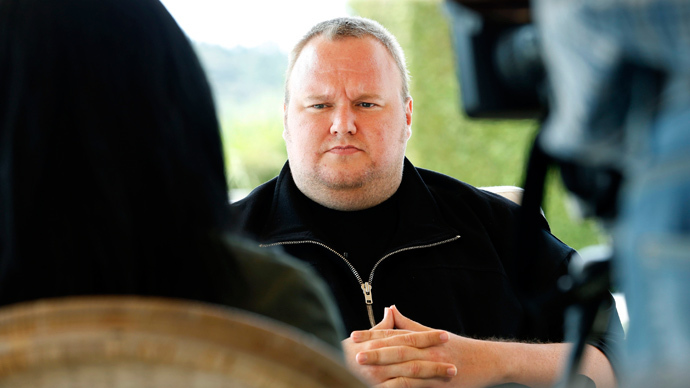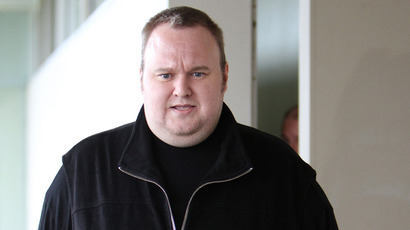Dotcom to get ‘involved in politics’ as NZ govt proposes new surveillance bill

Tech mogul Kim Dotcom announced that he plans to be involved in next New Zealand general election while lobbying against a new legislation which would give spy agencies more powers to retrieve internet users’ personal information.
"I'm going to get engaged. I'm going to help as much as I can
during the next election to make sure there is a government that
takes the internet more seriously," said the founder of the
file-sharing service Megaupload at the "Mega Breakfast"
annual meeting of the Institute of IT Professionals , the New
Zealand Herald reports.
He urged the IT community to carry out a campaign to improve
government policy concerning internet business and issues. At the
meeting he called to lobby against a new legislation that would
require internet and telecoms companies to provide backdoor
government access and approval for new technology.
The new proposed bill would allow the New Zealand’s
Government Communications Security Bureau (GCSB) to spy on its
citizens on behalf of another agency, if they have a warrant.
The GCSB carried out domestic surveillance for the Security
Intelligence Service, police and other agencies until last
August, when the Kim Dotcom case raised questions about its
legality. It was found that the GCSB were illegally spying on the
Megaupload founder, a German national with New Zealand residency,
prior to his arrest in January 2012 for alleged copyright
violation.
Dotcom was subsequently arrested by the authorities who were
aiding a US investigation into copyright violation. In March,
Dotcom was granted the right to sue the secret services agency.
According to an inquiry released in April, another 88 New Zealand
citizens may have been illegally spied on.
Along with his Mega founder Mathias Ortmann he told the IT
colleagues at the meeting that the recent revelations of the US
NSA mass surveillance program by former CIA employee Edward
Snowden, including New Zealand’s GCSB, had boosted the demand for
his company’s encrypted cloud storage system.
At the Breakfast meeting Dotcom dismissed Prime Minister
John Key’s statement that the spying law had been
misunderstood.
"The law says you can't spy on New Zealanders. John Key stands
in front of cameras and says 'we misunderstood the law'. How
stupid can you get?"
The revelation of illegal spying by government agencies had
created a potential shift in responsibility for the Megaupload
business, said Dotcom.
"The potential settlement or damages situation has changed
quite a bit since we discovered what went on. Potentially, at
some point, we could go after the New Zealand government for full
damages. I've said before I don't want to be a burden to New
Zealand. The majority of that (settlement) would be reinvested in
submarine cables, rural broadband."
The internet tycoon announced that he is currently involved with
two investor groups and is set to start work on a second
submarine cable to bring faster internet to New Zealand within 12
months.
The Institute billed Dotcom and Ortmann’s addresses as a chance
to engage with those behind "New Zealand's largest tech
start-up this year" said the NZ Herald.














